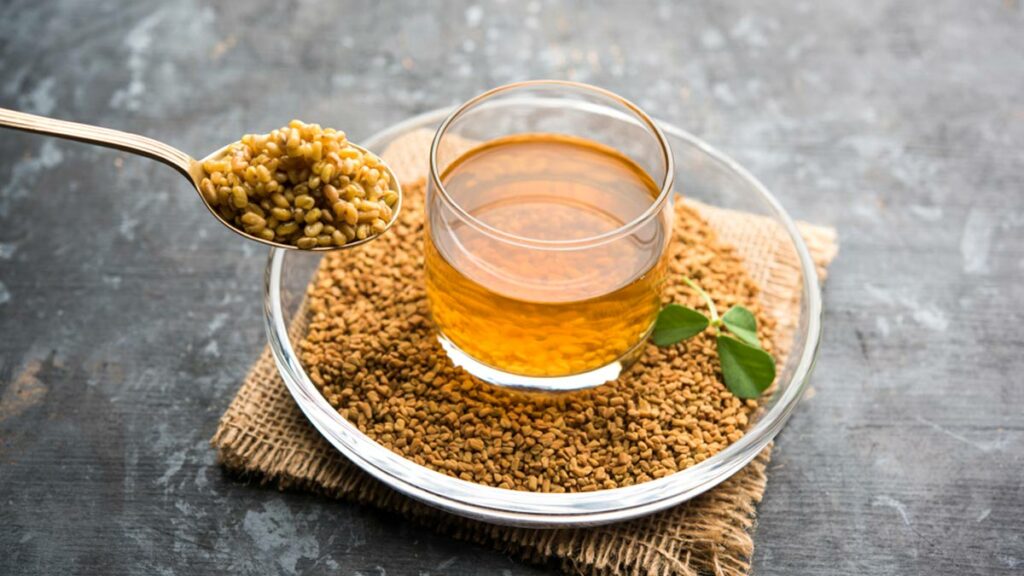Managing high cholesterol is essential for maintaining heart health and preventing serious conditions like heart disease and stroke. While medications are often prescribed to control cholesterol levels, a well-regulated diet can also be very effective. One natural way to manage high LDL (bad) cholesterol is through fenugreek seeds, also known as methi. This article explores seven practical methods for including fenugreek seeds in your diet to help lower cholesterol and support heart health.
Understanding the Impact of High Cholesterol on Heart Health
Cholesterol is a fatty substance in the blood that is used to build cells and produce hormones. However, when cholesterol levels become too high, it can lead to plaque buildup in the arteries. This plaque can restrict blood flow, increasing the risk of cardiovascular diseases such as heart attacks and strokes. Managing cholesterol levels through diet and lifestyle changes is crucial for heart health.
How Fenugreek Seeds Can Help Lower LDL Cholesterol
Fenugreek seeds are rich in soluble fiber, which plays a significant role in lowering LDL cholesterol. This fiber binds to cholesterol in the digestive system, preventing its absorption into the bloodstream. Additionally, fenugreek seeds are packed with antioxidants and essential nutrients that support heart health and reduce inflammation in the arteries.
7 Ways to Include Fenugreek Seeds in Your Diet for Cholesterol Management
Here are seven effective methods for consuming fenugreek seeds to help manage high cholesterol levels:
1. Soaked Fenugreek Water
Start your day with a glass of soaked fenugreek water. To prepare, soak one teaspoon of fenugreek seeds in a glass of water overnight. Strain the seeds in the morning and drink the water throughout the day. This simple method helps cleanse your digestive system and manage cholesterol levels.
2. Fenugreek Seed Tea
Fenugreek tea is another easy way to consume fenugreek seeds. Add a teaspoon of fenugreek seeds to hot water and let it steep for 10-15 minutes. This tea offers a mild, slightly bitter taste and can be a refreshing way to support your cholesterol-lowering efforts.
3. Fenugreek Seed Powder
If you prefer a more versatile option, try fenugreek seed powder. You can sprinkle the powder on salads, soups, or other dishes to enhance flavor and boost your intake of fenugreek’s cholesterol-fighting properties.
4. Fenugreek Seed Sprouts
Fenugreek seed sprouts are a nutritious addition to your diet. To make sprouts, soak fenugreek seeds overnight, then drain and let them germinate for a couple of days. These sprouts can be added to salads, sandwiches, or wraps for a crunchy texture and added health benefits.
5. Fenugreek Seed Yogurt Dip
Prepare a healthy dip by blending fenugreek seeds with yogurt, garlic, and a pinch of salt. This dip is not only delicious but also offers a combination of probiotics from yogurt and cholesterol-lowering properties from fenugreek seeds. It pairs well with fresh vegetables, whole-grain crackers, or as a sandwich spread.
6. Fenugreek Seed Curry
Incorporate fenugreek seeds into your meals by adding them to curries or stews. They complement the rich flavors of Indian curries and contribute to heart health. Regularly including fenugreek seeds in your meals can help reduce cholesterol levels and improve overall cardiovascular health.
7. Fenugreek Seed Energy Balls
For a convenient and healthy snack, try making fenugreek seed energy balls. Combine fenugreek seeds with nuts, dates, and a sprinkle of cinnamon to create bite-sized snacks that are high in fiber, protein, and healthy fats. These energy balls can help manage cholesterol levels while satisfying your cravings.
Conclusion
Fenugreek seeds offer a natural and effective way to manage high LDL cholesterol and support heart health. By incorporating fenugreek seeds into your diet through various methods, you can take a proactive approach to controlling cholesterol levels and enhancing cardiovascular wellness.
Always consult with your doctor or a healthcare professional before making significant dietary changes for managing high cholesterol. They can provide personalized guidance based on your medical history and current health status.

